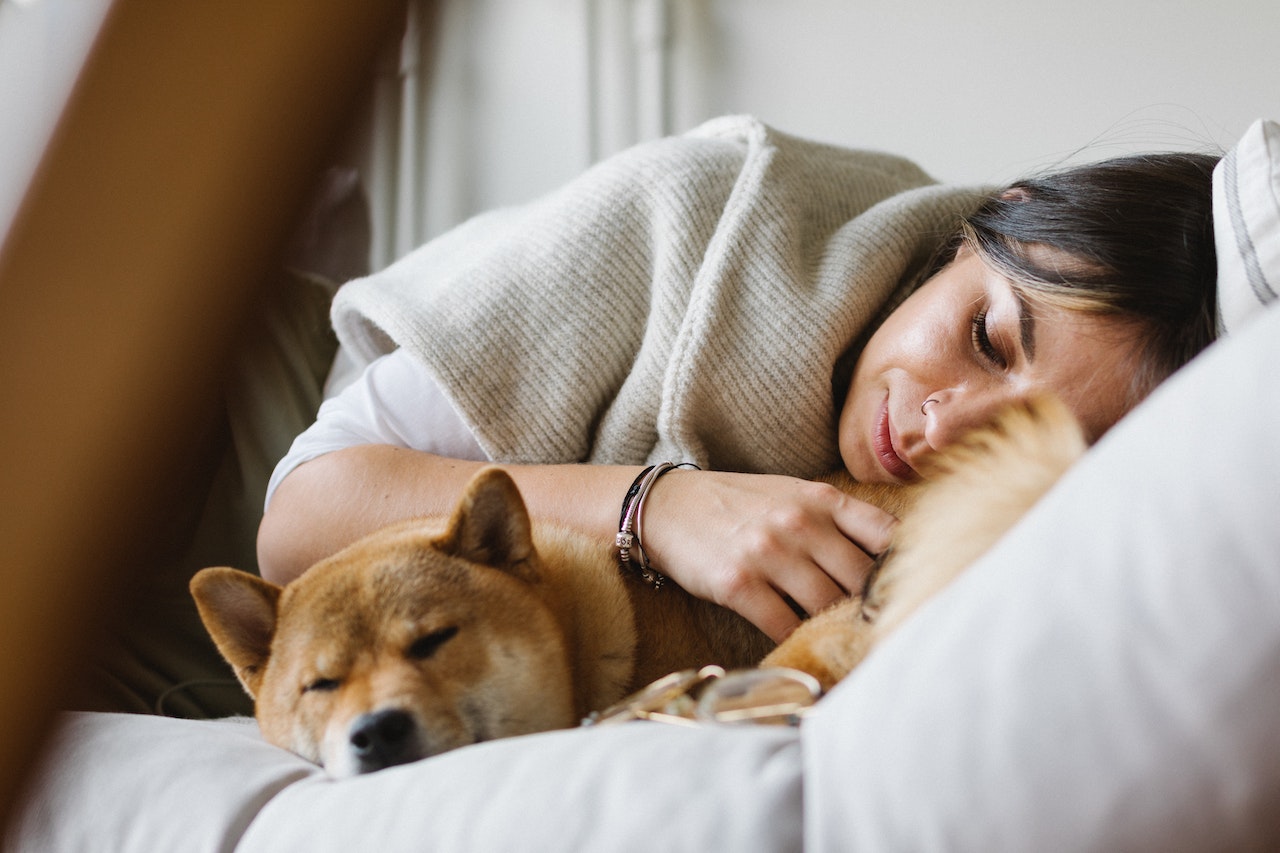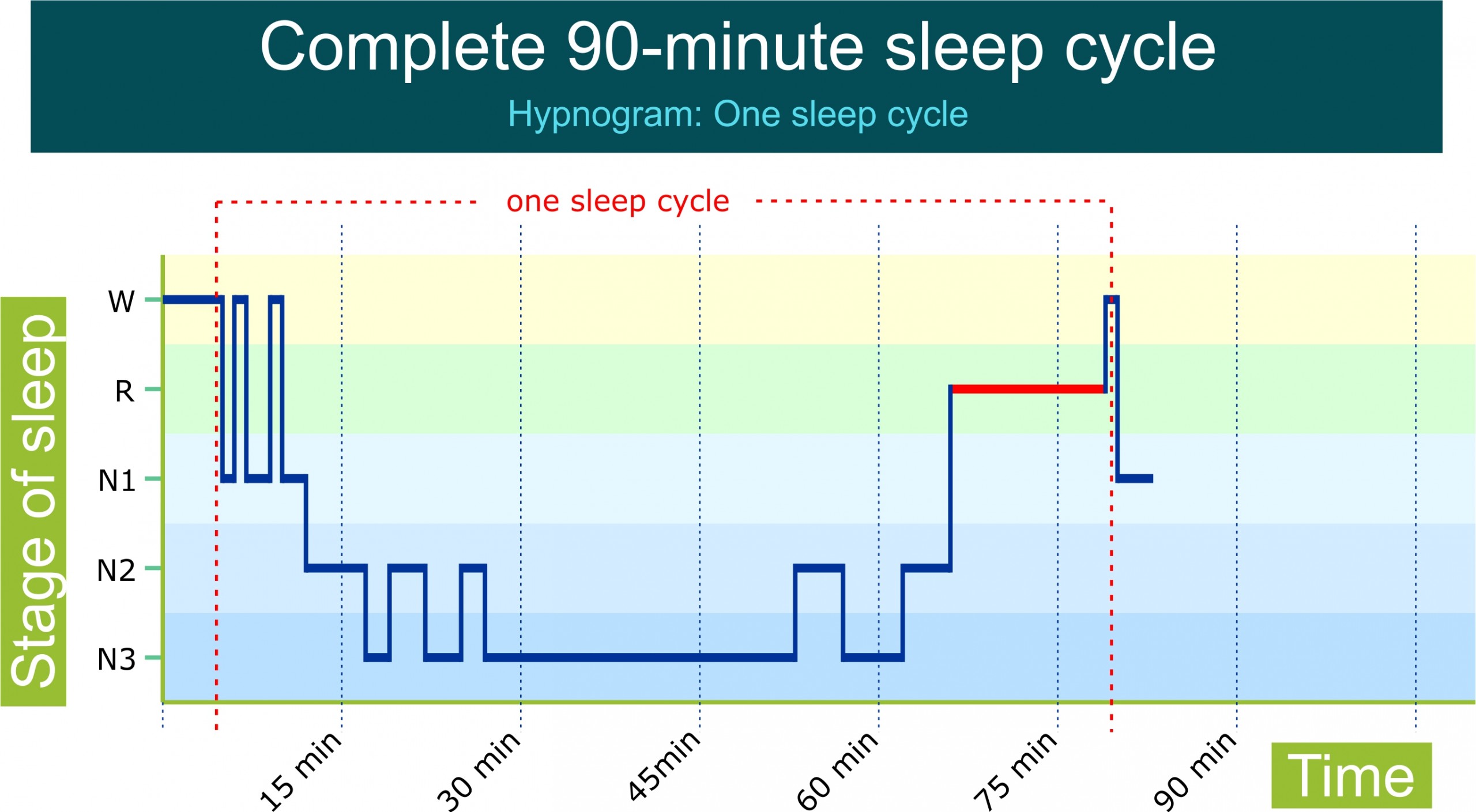We often prioritize naps for children, but what about adults?
As it turns out, a third of all U.S. adults are running rampantly short on sleep. That means that one in three people sleep less than seven hours each night.
Missed sleep might not sound like much of a concern, but in reality, it’s hazardous to our health.
Sleep debt leads to lowered reaction times, decreased judgment, impaired vision, memory issues, lowered performance, and increased burnout and stress.
In the long run, chronic sleep deprivation may even increase the risk of heart disease, diabetes, obesity, depression, and anxiety.
Naps can act as a saving grace for a poor night’s rest. But what is the optimal nap length? Are short naps better than long naps? Is a 15-minute nap better than a 45-minute nap?
We’ve rounded up the answers - but we must first examine the benefits of napping in general, regardless of the duration.
Powerful Perks of Napping
To nap or not to nap? Science says that napping offers huge benefits for reducing fatigue, boosting memory, and enhancing performance in a pinch.
In fact, some companies like Google and NASA even allow employees to nap in the middle of the day for better productivity.
A NASA study on astronauts found that naps improved working memory performance, or the ability to focus on a certain task while remembering facts about separate tasks.

The study concluded that naps are a quick, effective way to reduce workplace errors while enhancing focus and attention.
The benefits don’t stop there. Taking a couple of naps per week has even been found to lower the risk of heart attacks and strokes, according to 2019 research.
Therefore, if you want to bring down fatigue, achieve a quick mood boost, and feel more alert all while improving your health, a nap is the way to go.
But what time of the day is best to take a quick snooze?
Timing is Everything
According to the Mayo Clinic, if you’re going to nap, it’s best to nap before 3 PM.
If you nap after 3 in the afternoon, it may interfere with your nighttime sleep schedule and throw off your circadian rhythm.
When determining the best nap duration, there’s truly no right or wrong answer. It also depends on your goals for taking a quick siesta.
For example, if you’re sleep deprived, you may fall into a deep sleep while napping much quicker than if you’ve been maintaining healthy sleep patterns.
As a result, it may be more difficult to wake up from a nap if you’re short on sleep, meaning that a short nap could benefit you more than a long one.
The phenomenon of extreme grogginess upon waking is often called sleep inertia.
While we sleep, we cycle through multiple phases of sleep. Each complete sleep cycle takes anywhere from around 90 to 110 minutes to complete.
Therefore, if you’re going to take a long nap, try not to go over 90 minutes so that you wake up just as a sleep cycle is complete.
That said, some sleep experts say that a 20 to 30-minute nap is the perfect power nap length for optimal results.
Short Naps: A Quick Reset
While napping provides a quick reset in the middle of the day, it may also help boost our mood and immune system.
According to a study published in The Journal of Clinical Endocrinology and Metabolism, short 30-minute naps are proven to boost immune biomarkers in healthy young adult men.

In contrast, some experts say 30 minutes is too long of a nap, suggesting that 20 minutes is a more efficient nap duration.
Others believe that a nap duration somewhere in the middle offers a sweet spot. A 1995 study revealed that a 26-minute nap offers the best improvement in productivity and alertness when compared to other nap lengths.
If you’re short on time, have kids, or work a busy schedule filled with shift work, a short power nap offers huge perks.
However, separate research suggests that longer 45-minute naps offer the most bang for your buck overall - if you can find the time, that is.
Long Naps: Restorative Rest
While most of us may not always have the time for a long nap, it’s better to shoot for a longer snooze if you’re seriously short on sleep.
A short nap is better than nothing, but a lengthier rest is proven to boast more health benefits.
A Harvard study recently found that a 45-minute nap improves learning and memory more than other nap durations.
Separate research has found that an hour-long nap offers even more restorative enhancement than a quick, 30-minute nap.
That said, longer naps run a greater risk of affecting your nighttime sleep quality, further throwing off your sleep patterns.

Therefore, the key to achieving the best lengthy nap is to try to wake up as a sleep cycle ends. If you wake up in the middle of one, you’ll feel groggy and have a much harder time getting back to your day.
A 90-minute nap usually ensures that you’ll cycle through one full cycle of sleep, ensuring that you’ll wake up with a clear head, better memory, and recover from sleep loss without any sleep inertia.
While there are perks and drawbacks to each length of nap, you should adjust your nap length to your schedule. If you only have 15 free minutes, utilize them and nap!
But if you have the time to squeeze in a 45-minute nap or a 90-minute nap, go for it.
For an added nap hack, attempt to turn your normal rest into a caffeinated one.
Caffeine Naps: Nappucino 101
Expert power nappers are no stranger to caffeine naps. Many people claim that consuming coffee or another source of caffeine immediately before napping is the ultimate biohack.
The idea with this method is that by the time your system absorbs the caffeine, it will help wake you up at an ideal time.
According to a study from a 2020 edition of Chronobiology International, it’s proven to work.
Researchers had participants consume 200 milligrams of caffeine before napping for 30 minutes. This amount, equivalent to two cups of coffee, was found to cause increased attention and lowered fatigue when compared to participants who consumed a placebo.
That said, the effectiveness of a caffeine nap may depend on how each individual responds to caffeine.
If you find yourself feeling immediately wired or anxious after drinking coffee, for example, this method may not work for you.
@somnifix Coffee lovers rejoice! ☕️ Your cup of joe might be the key to an optimal nap, according to recent research 😏 #caffeinenap #coffeetok #biohack #sleephack #didyouknow #learntok ♬ After Last Night (Silk Sonic) [Sped Up Version] - sped up nightcore
Whether you choose to consume caffeine before your nap or not, keep in mind that timing your nap with your sleep cycles will lead to the greatest enhancement of cognitive function and performance.
That means that if you have the time to take a 90-minute nap, you should.
However, whether short naps or long naps are your forte, address your breathing patterns while you sleep to get the most out of your shut-eye.
Breathe Your Way to a Better Nap
Just as coffee can enhance the quality of your nap, so can your breathing patterns.
If you breathe through your mouth (whether awake or asleep), your body, lungs, and airway are working overtime.
Nasal breathing, on the other hand, allows for proper oxygenation, filtration, and humidification of the air you breathe, boosting focus, concentration, and memory.

Moreover, nasal breathing prevents snoring during sleep while mouth breathing causes it. When we mouth breathe during sleep, airway tissues fall backward and obstruct our breathing.
As tissues vibrate together, the horrendous sound of snoring follows. That means disrupted sleep for both you and your sleeping partner, whether you know you’re snoring or not.
By nasal breathing at all times instead of mouth breathing, you’ll ensure proper oxygenation and snoring prevention.
But how do you nasal breathe during sleep? Mouth tape is the key to locking in a proper lip seal and tongue posture that ensures nasal breathing during rest.
All you have to do is gently place mouth tape over your lips before falling asleep.
That said, adhesives in most tapes aren’t skin-safe. SomniFix, however, is.

Our strips were designed with even the most sensitive skin in mind, protecting you from rashes and irritation.
Moreover, if you’re nervous about overnight congestion, our strips have you covered. SomniFix includes a patented central breathing vent on each strip that offers an emergency mouth breathing option.
Whether you’re climbing into bed for a short nap, a long nap, or a full night’s rest, add SomniFix to your nightly routine for your best sleep yet!





